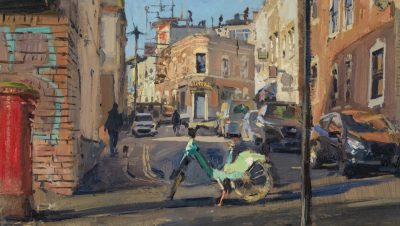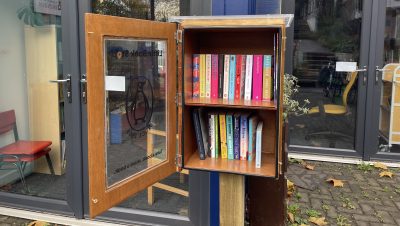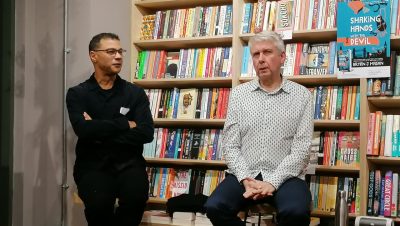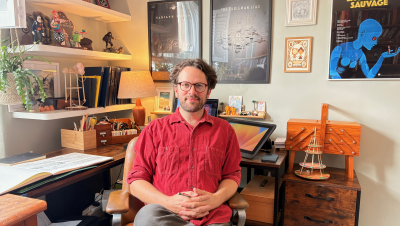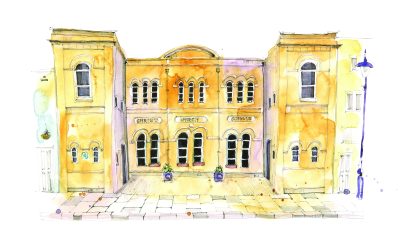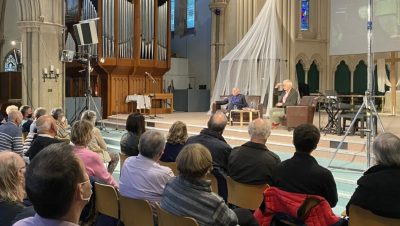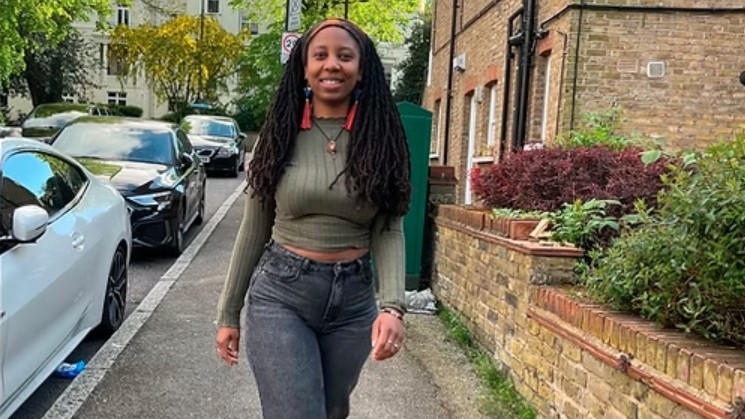
Books / Racial justice
Empowering the global majority with a wellbeing toolkit designed for them
Lildonia Lawrence, a wellbeing coach and equality and inclusion trainer specialising in wellbeing for people of global majority, has written her first book, Back Yourself: A Wellbeing Guide to Healing from Racial Trauma.
Lildonia stresses the need for a global majority specific toolkit to ensure those who have survived or are surviving oppressive structures are able to maintain and even improve their wellbeing and mental health.
The Totterdown resident studied for an undergraduate degree in psychology while teaching dance; two distinct sides to her personality.
is needed now More than ever
While she wanted to merge the two into a sort of dance movement psychotherapy or sports psychology, she says she couldn’t afford to.
“I didn’t get any bursaries or support, so I went instead to do coaching,” Lildonia explains.
“I ended up doing coaching almost as a plan B, but it actually was the best thing I could have done because I love coaching and it’s what I’ve been doing ever since.”
She progressed into wellbeing roles at charities and within the education sector, with more of a slant of equality as the years went on.
The pivotal moment that put her on her current trajectory was during the pandemic when she was drafted in as a wellbeing coach for key workers from the global majority (formerly known as BAME).
“I was working with doctors, nurses, surgeons, and social workers, all people of colour and doing wellbeing coaching for them at a very intense level.
“I started to notice recurring themes that I would see within our communities. I would see people from African backgrounds, South Asian backgrounds, East Asian and West African…
“But I also ended up seeing people from central Asia, from North Africa, from the Arab diaspora, so many different diasporas. But then we were bringing the same topics of space, things like imposter syndrome, things like feeling othered and micro-aggressions.
“Or feeling like you can’t speak up to elders because in our cultures we really respect our elders, but then that gets confusing maybe when your boss is older than you and you want to challenge them but don’t quite know how.”
In seeing this, she realised that “we’re from all over the world, but face really similar challenges”.
That’s when she started working with those themes and then eventually she decided to survey her clients who were willing to get their opinions.
“I thought actually there’s a lot of work going on with dismantling oppressive systems, which is important and anti-racism which is important and I do that work as well.
“But while that’s going on, what about the people who are still experiencing the oppression of these systems, which is also myself, and how do we look after ourselves?”
That’s when she established that this kind of book was needed.
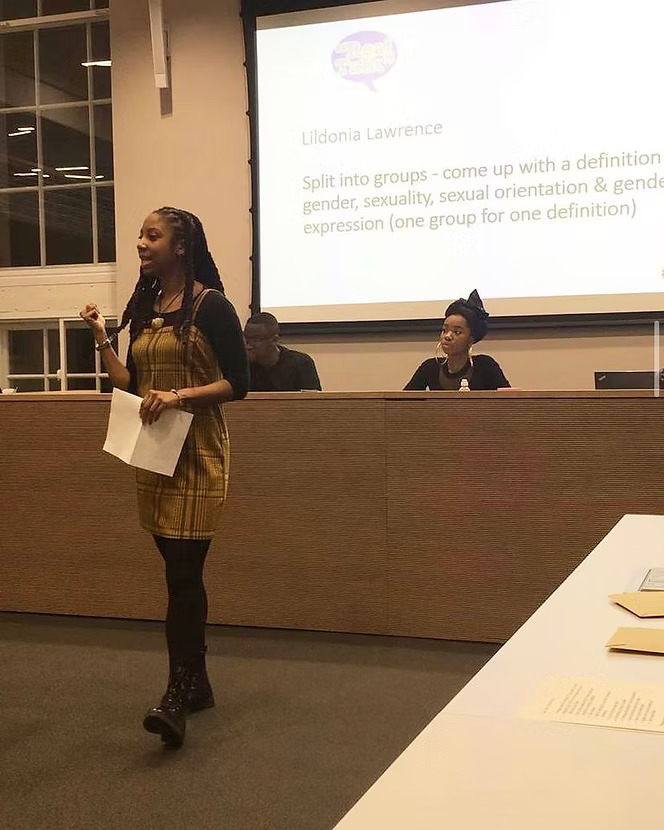
Seeing her mum retrain as a dramatherapist was “inspiring” to Lildonia, as this broke the mould of what she thought a person in that role could look like
During the research for her boook, Lildonia found surprising challenges and the need for innovative solutions.
“People who maybe come from a background where faith is a big part of their practice, or prayer, or meditation and mantra, they gave feedback that they haven’t had a space before where that it’s been welcomed or they’ve even felt able to even bring that up…
“Diverse communities will draw on a wide range of tools to stay resilient, but a lot of the time those things can be shunned or made a big deal out of.
“For instance, I delivered training recently and there was conversation about Muslims praying in the lead up to Ramadan.
“I think they were trying to be inclusive, but by bringing it up as a topic it was othering.”
She uses fasting to illustrate her point: “For people who are fasting, we can create an open space, but they know what to do.
“We don’t need to highlight or create a sense of otherness. Sometimes there’s a difference between taking interest or making someone feel like they’re othered.
“That’s just something that happens so often and people who aren’t in the position of being othered don’t even realise that they’re doing it.”
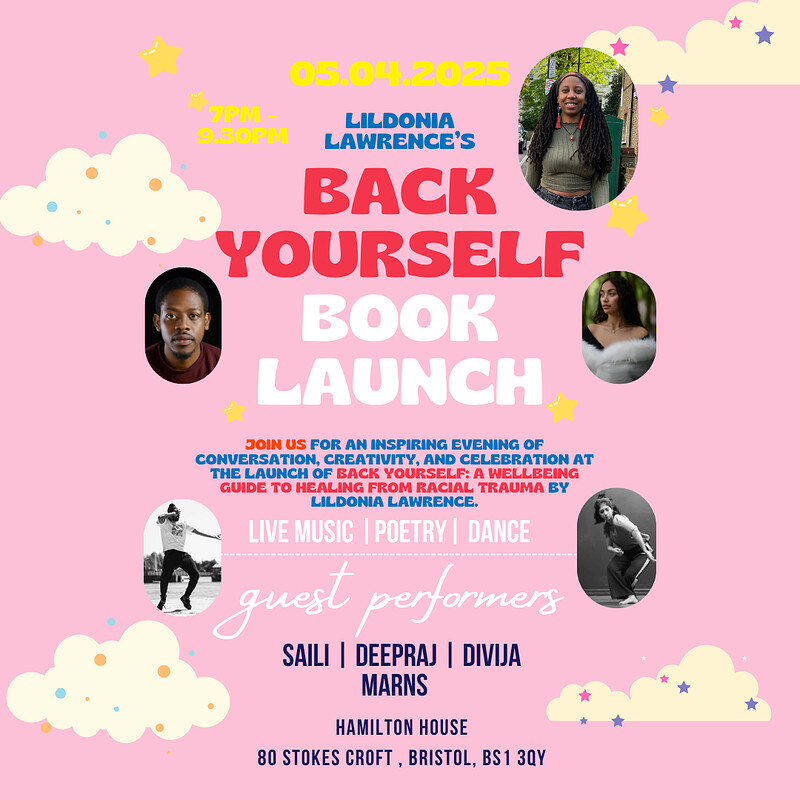
“I wanted to have performers there who are local to Bristol, who are doing great work in terms of their artistry and their community works”
Lildonia adds: “I perceive whiteness as a system. There are people who have white skin, like traveller communities or just various different communities that still experience so much racial discrimination.
“It’s very much not about skin colour. It’s about the systems and who’s let in and who is let out.”
She demonstrates this in a number of ways. One of the chapters of the book covers cultural conflict: “I try to make sense of a kind of dual identity and then even more so if you’re mixed heritage, which I am, there’s like even more countries in the mix and it can and it can be a lot.”
In response to that cultural conflict she goes through “how to make sense and how to choose the values and the parts of your culture that you could feel a sense of pride in”.
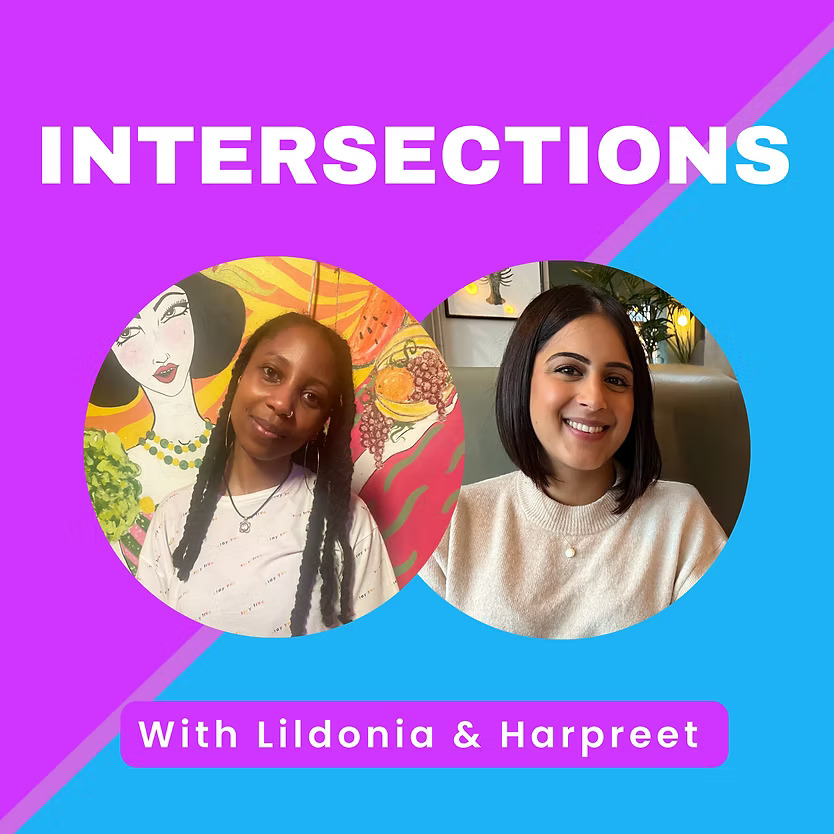
Lildonia has a podcast with friend Harpreet Nandha called Intersections
In the book, Lildonia has been able to combine her two passions for wellbeing and movement.
She explains that 20 to 30 per cent of each chapter is the theory, “why we are the way we are, why you might be feeling what we’re feeling and then the rest of the chapter is around how to move forward tools and resources that people can use”.
“Because of my background as a dance teacher, as a yoga instructor, a lot of it is body-based, so moving emotions through the body, breathwork, things like that.
“We’re not just like floating heads that can think their way out of these difficult scenarios.”
Much of the tools focus on the nervous system and how movement and energy can be funnelled into a holistic approach to wellbeing.
Due to the demographic of the clients who she coaches, much of the toolkit is specific to those considered Millennial and Gen Z.
“I think for millennials and Gen Z, there’s a lot of focus on wellbeing, but sometimes it’s more on the self-care side of things, like bubble baths, spa days or gym.
“But actually there can be work with going quite a bit deeper so some parts of my books are quite deep, for example the chapter on intergenerational trauma.”
The idea that while you might not directly experience trauma, explains Lildonia, “if your parents, who are your grandparents have fled from their country of origin or if they came here and experienced severe discrimination or couldn’t get work and had to completely change their career.
“These things filter down so I like to capture them with the self-care vibe, but then we go a little bit deeper to do some of the deeper interrogation and hopefully work through that and come about the other side.”
In doing the work, to her surprise she realised her mum had come to the UK as part of the Windrush generation and that she had never shared any details with her before, never so much as mentioning it.
It highlighted this shift in approaches among generations to dealing with trauma.
View this post on Instagram
The book will be launched alongside a day of live music, dance and conversation, with Lildonia also wanting to demystify the process of getting published: “I want to talk about that side of this because it wasn’t actually an easy journey to get published, especially because global majority wellbeing is not necessarily a hot topic.
“You can see a lot more nonfiction that have global majority protagonists, but in terms of our real life it’s not necessarily the focus of publishers, so it took a long time to get a publisher.”
On her vision board she tells me she has ‘one million’ written on it, a goal that signifies the number of people she is trying to reach: “I just want to be of service to as many people in my community that I can because I’m really grateful to the people who’ve been of service to me in my own journey.”
The book launch is at Hamilton House on April 5. For tickets and more information, visit www.headfirstbristol.co.uk/whats-on/hamilton-house/sat-5-apr-back-yourself-the-launch-party-120377
All photos: Move with Lildonia
Read next:
 Our newsletters emailed directly to you
Our newsletters emailed directly to you












